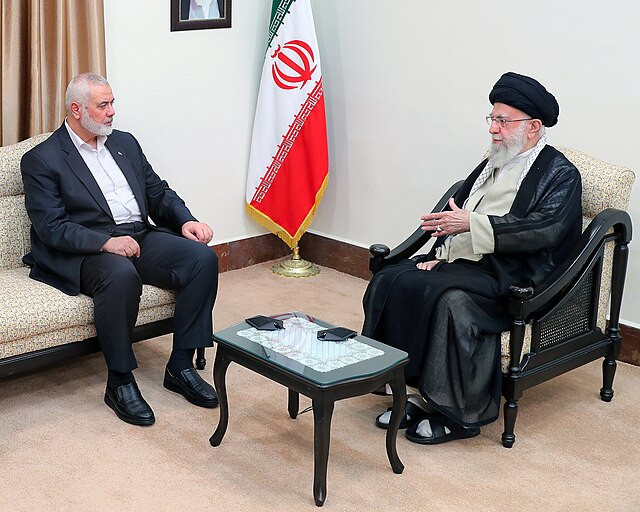Secretary of State Antony Blinken alerted G7 counterparts on Sunday about an impending attack by Iran and Hezbollah on Israel, potentially within the next 24 hours, according to sources briefed on the call. This urgent notification underscores escalating tensions in the Middle East and the pressing need for diplomatic intervention to prevent a broader conflict.
During a conference call, Blinken emphasized the critical importance of minimizing retaliatory actions from Iran and Hezbollah to avert an all-out war. "Limiting the impact of their strikes is our best chance to prevent a wider conflict," he told the G7 ministers. The warning follows the assassinations of Hamas political leader Ismail Haniyeh in Tehran and Hezbollah military commander Fuad Shukr in Beirut, acts attributed to Israel.
Sources indicate that Blinken expressed frustration over recent negotiations with Israel regarding a Gaza hostage and ceasefire deal, which had shown promise before the assassinations. "We were close to a breakthrough," he reportedly said. Now, with increased threats, Blinken stressed the urgency of maintaining restraint on all sides.
In response to the looming threat, U.S. Central Command commander Gen. Michael Kurilla is scheduled to arrive in Israel to finalize preparations with the Israeli Defense Forces (IDF). Israeli Prime Minister Benjamin Netanyahu convened a high-level meeting on Sunday with Defense Minister Yoav Gallant and military and intelligence leaders. Netanyahu declared, "Iran and its minions are looking to surround us in a stranglehold of terrorism. We are determined to stand against them on every front and in every arena."
The Israeli government is on high alert, preparing for a possible multi-front war. Defense Minister Gallant reiterated U.S. support during a conversation with his American counterpart, Lloyd Austin, who assured continued U.S. backing for Israel's defense and regional stability.
The situation has prompted other regional actors to seek de-escalation measures. Jordanian Foreign Minister Ayman Safadi visited Tehran, marking the first such visit in nearly a decade. Safadi emphasized his concern over potential regional escalation, stating, "We want the escalation to end."
The anticipated Iranian and Hezbollah retaliation differs from the April 13 attack, in which Iran launched nearly 350 drones and missiles at Israel, most of which were intercepted with the help of U.S. and allied forces. The form and timing of the new threat remain unclear, but the urgency of Blinken's message indicates the high stakes involved.
U.S. forces in the region have been reinforced for defensive purposes, and diplomatic channels are being used to urge maximum restraint from all parties. The G7 ministers issued a statement expressing deep concern over the heightened tensions and calling for constructive engagement to de-escalate the situation.
In Washington, President Biden is expected to meet with his national security team to discuss the Middle East crisis, highlighting the global implications of the escalating conflict. The administration continues to push for a diplomatic resolution, balancing support for Israel with efforts to prevent further violence.
Meanwhile, the IDF remains vigilant, with spokesperson Rear Admiral Daniel Hagari underscoring Israel's resolve to combat Iranian terrorism. "We are determined to continue acting against Iranian terrorism wherever it may be," Hagari said.




